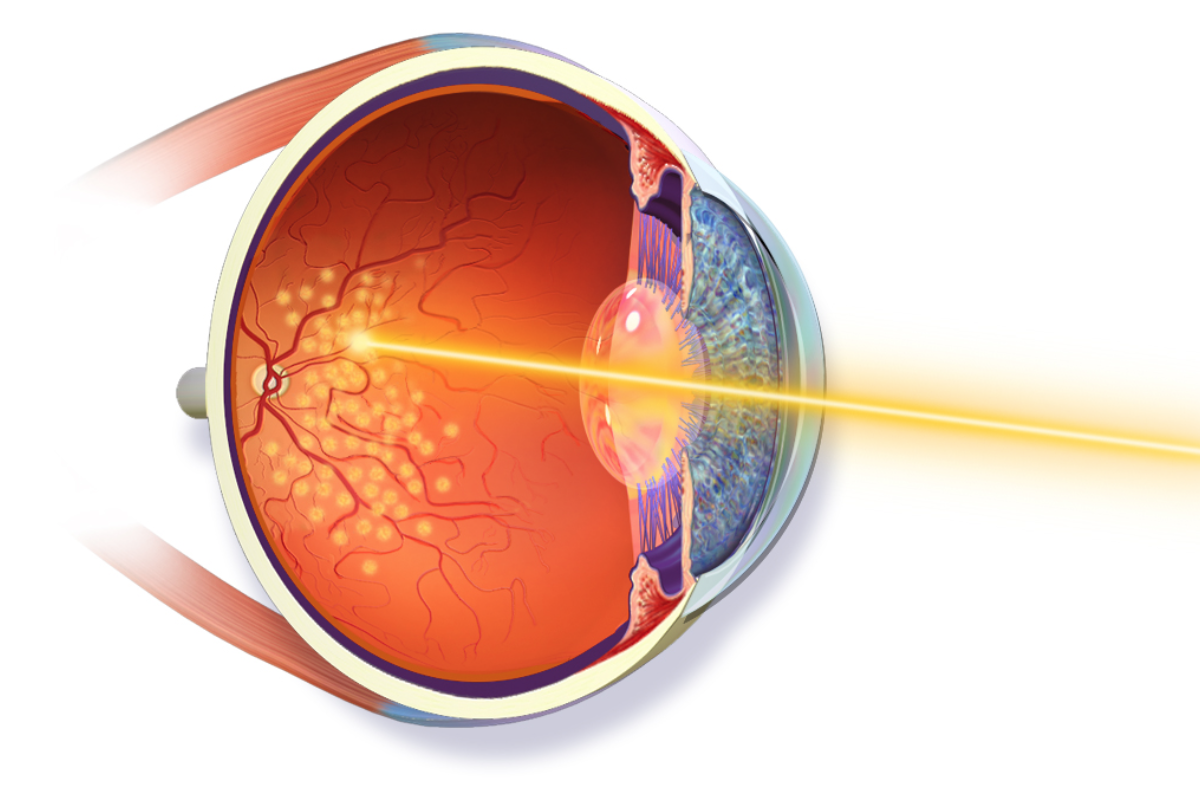 Retinal Laser: A Precise Tool for Treating Retinal Diseases
Retinal Laser: A Precise Tool for Treating Retinal DiseasesRetinal laser is a precise and effective treatment method for a wide range of retinal diseases. In this procedure, a high-intensity and highly focused laser beam is used to target damaged areas of the retina. This beam causes thermal changes in the target tissue, ultimately aiding in the treatment of the disease.
Which diseases are treated with retinal laser?
Diabetic retinopathy: One of the most common applications of retinal laser is in the treatment of diabetic retinopathy. In this disease, the blood vessels in the retina are damaged, which can lead to fluid leakage or bleeding. The laser seals the leaking vessels, preventing disease progression and vision loss.
Retinal tears: If a tear occurs in the retina, the laser creates a scar around the tear to prevent it from spreading and causing a retinal detachment.
Retinal tumors: Some benign retinal tumors can be treated with laser.
Macular edema: In some cases, laser is used to treat macular edema, which causes central vision blurring.
Benefits of retinal laser
High precision: The laser targets damaged areas with great precision, avoiding damage to healthy tissues.
High speed: Laser treatment is usually quick and the procedure time is short.
Minimal pain: Retinal laser is usually performed with local anesthesia, and the patient experiences little pain.
No general anesthesia required: In most cases, general anesthesia is not necessary.
Outpatient procedure: The procedure is usually performed on an outpatient basis, and the patient can return home after a short time.
Stages of retinal laser procedure
Local anesthesia: Before the procedure begins, anesthetic drops are instilled into the eye.
Eye fixation: A special instrument is placed on the eyelid to keep the eye still and prevent movement.
Laser irradiation: The doctor uses the laser device to target the damaged areas of the retina.
End of procedure: After the laser procedure is completed, eye drops are prescribed, and the patient rests for a short time.
Post-retinal laser care
After the laser procedure, the doctor will provide instructions for eye care, which may include:
Using eye drops
Avoiding strenuous activity
Regular follow-up visits with the doctor to monitor the eye's condition
Who can undergo retinal laser?
Many people with retinal diseases may be suitable candidates for laser treatment. However, the decision to undergo laser treatment should be made by a qualified eye specialist. Retinal laser is an effective treatment method, but it does not guarantee complete vision recovery. The outcome of treatment depends on the type of disease, its severity, and other factors.

 Retinal Laser: A Precise Tool for Treating Retinal Diseases
Retinal Laser: A Precise Tool for Treating Retinal Diseases
comment